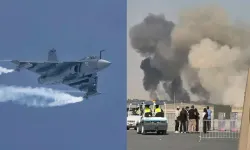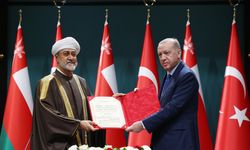China has called on NATO to avoid escalating tensions and to move away from what it describes as a “Cold War mentality,” following remarks by the alliance’s Secretary General linking Beijing to Russia’s war effort in Ukraine.
Speaking at a press conference in Beijing on Thursday, Chinese Foreign Ministry spokesperson Guo Jiakun responded to recent comments by NATO chief Mark Rutte, who said that China, along with Iran and North Korea, was supporting Russia in its war against Ukraine. Rutte made the remarks earlier this week at the NATO Public Forum in the Netherlands.
Guo described the Secretary General’s comments as an attempt to “vilify China's normal military development,” and said such claims serve as a pretext for expanding NATO’s military reach and boosting defense budgets.
"NATO claims to be a regional organization," Guo said, "yet it continues to extend its influence beyond its charter, using Eurasian connectivity as justification for its growing presence in the Asia-Pacific."
Beijing also criticized NATO’s recent move to endorse a new defense spending target of 5% of national GDP by 2035. Guo said this figure exceeds the alliance’s current collective share of global military spending, which stood at 55% in 2024 according to Chinese estimates.
“These moves are aimed at building a more lethal NATO with ulterior motives,” he stated.
China’s military spending also continues to rise. According to the Stockholm International Peace Research Institute (SIPRI), China was the second-largest military spender in 2024, allocating an estimated $314 billion—approximately half of total military expenditure in Asia.
Guo reiterated that China would “firmly safeguard its sovereignty, security, development, and interests.”
Separately, Chinese Defense Ministry spokesperson Zhang Xiaogang addressed U.S. policy on Taiwan, calling on Washington to respect the “one-China” principle and refrain from what Beijing views as support for separatist movements. The remarks came after the U.S. approved a $500 million budget for military aid to Taiwan for 2026.








